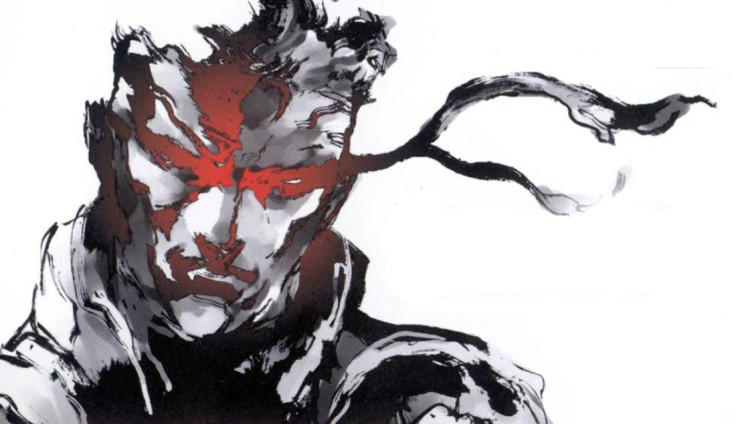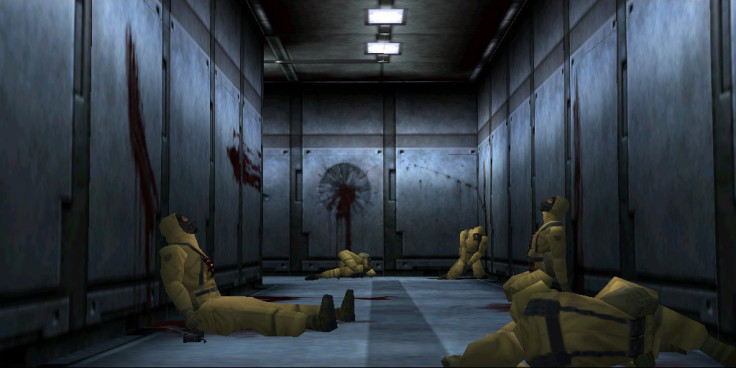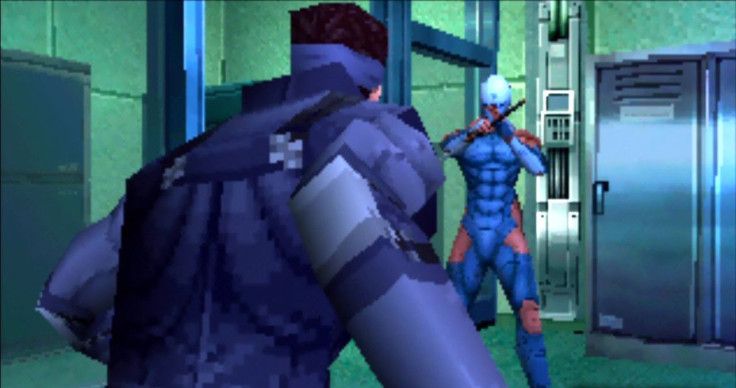Hideo Kojima's Metal Gear Solid: The greatest action movie ever played

Ten minutes into 1998's Metal Gear Solid and it's clear you're already in the middle of the one of the best action movies never made. The hero, Solid Snake, is an operative drawn out of retirement for one last job. The job? Sneaking into Alaskan nuclear disarmament facility Shadow Moses. Your enemies? Genetically modified "genome soldiers" and American Special Forces unit: Foxhound. Snake's former team.
Did I mention they're threatening to fire a nuclear missile at the United States from the back of a towering bipedal mech?
I'm not the first person to suggest series creator Hideo Kojima would be more at home directing movies than games, after all the greatest stealth mission in Metal Gear Solid 4 occurred during development when Kojima snuck 71 minutes of cutscenes into the game. My argument is that by creating Metal Gear Solid, Kojima has already made a playable movie that pays homage to the best tropes of the action genre.
Let's start with our grizzled hero. The obvious touchstone is Kurt Russell's Escape From New York character Snake Plissken, with "our" Snake exuding a lot of that same grizzled anti-hero persona. From the very first moments of MGS Solid Snake also channels a confused James Bond, hitting on every female character, snuffing out guards with disdain and in one scene telling his torturers that he plans to take a nap. He's a suave operator with a past full of regrets and a dark edge. He wants to do the right thing, but his morality is cast in shades of grey.
Remind you of anyone? Grizzled, lethal and reluctant, he is near enough every action movie protagonist rolled into one.
It's good that Snake is a straight badass, because his foes seem to come straight from the most ridiculous action movies of the 80s and 90s. There's a former KGB spy with a love for revolvers, a gas mask wearing psychic, a cyborg ninja and a hulking shirtless guy with a minigun. That's just half of the elite Foxhound unit.
A great action movie is defined by what happens when its hero clashes with such antagonists, and Kojima stuffed the original Metal Gear with memorable set pieces.

You'll fight a tank, have a fistfight with a ninja and there's golden moment where you're warned of an ambush by optically camouflaged (read: invisible) enemies on a lift by the buzz of its weight limit. These a just a few of MGS's best moments. Then there's the finest shot in the game: Snake's entry into a blood-soaked corridor filled with a patrol that has just encountered Cyborg Ninja. For a while the player grows fearful, for the first time feeling like a stealthy predator and more prey.
Kojima has a flair for the dramatic. While the scripted action sequences are sublime, the off-the-cuff firefights are better than they had any right to be. It's routine for stealth games to have terrible combat. That's how you encourage people to be stealthy (looking at you, Thief.) Here the environments are built to foster brutal conflict, the weapons designed to be easy to use in the panic you'll no doubt find yourself in as the faceless guards slowly overwhelm you. You feel powerful and it reinforces Snake's role as the all-action hero. If you're a good player, effortlessly sneaking past the guards, you're still building him up as the mythical character everyone else in the game seems to think he is.
MGS also had some emotional weight to offset the action, which is impressive considering the graphical restrictions of the time. The most memorable comes following a sniper battle against Sniper Wolf. Having shot her in the lung a seven minute cutscene culminates in your comedy sidekick declaring his love for her, asking: "What was she fighting for? What am I fighting for? What are you fighting for?" It's the sort of questioning for which games like Spec Ops: The Line were applauded, but generally you don't see this much self-awareness in games. "You'll die like the proud wolf you are" Snake says, before putting her out of her misery.
It's an overarching theme to the game: the soldiers are Samurai with ever-changing masters. There's a large amount of respect between them through their battles. Most will die after delivering to you their last confession or congratulating you on being a worthy opponent. As the executioners of many of this odd troop of villains, players get to hear about their background and in some instances offering help. There's no ill-feelings between old warriors.
A straight-forward action movie can be dull without an eleventh hour plot twist. It turns out that much like thieves there's no honour between government black ops operatives. Snake is going about his mission when suddenly people around you start dying. After a few "heart attacks" Snake discovers that nothing is what it seems, and you're infected with a virus designed to kill a small number of VIP's around the Shadow Moses facility. Suddenly it looks like Snake may not survive the mission.
The only thing left to do is to pull apart the insurrection by taking out the gang's leader, Liquid Snake, a man who has been posing as one of your support staff, and is revealed as the main antagonist in a big betrayal twist in the final third.
Numerous hints are dropped through the game that you and villain Liquid Snake aren't so different. Because we're still in action-movie land, it turns out Liquid Snake is your brother, but further still you're both genetic clones of legendary soldier Big Boss and conditioned to be the heirs to his legacy.

Liquid couldn't be more the evil twin if he grew a silly goatee, but to settle which Snake is best you engage in a bare-chested fist fight atop the cockpit of Metal Gear Rex - the aforementioned building-high bipedal tank.
Honestly, this the way every action movie should end. It doesn't matter about the first two thirds of the film, just arrange a fist fight between your character and their genetic twin atop a giant stompy robot and I wouldn't be the only one throwing money at you.
Making a good movie is hard. I spent two years studying how to and didn't get any useful insight. I'm told pacing is often a problem and composing the perfect shot is an art form. Hideo Kojima managed to match the pacing and production values of a big budget Hollywood movie and then maintain that quality for the length of an 8 hour game. He's one of the video game world's few true auteurs, which makes the apparent news that he'll be leaving the franchise surprisingly harrowing.
Maybe, however, we've finally found the right person to direct that Metal Gear Solid movie.
For all the latest video game news follow us on Twitter @IBTGamesUK.
© Copyright IBTimes 2025. All rights reserved.






















